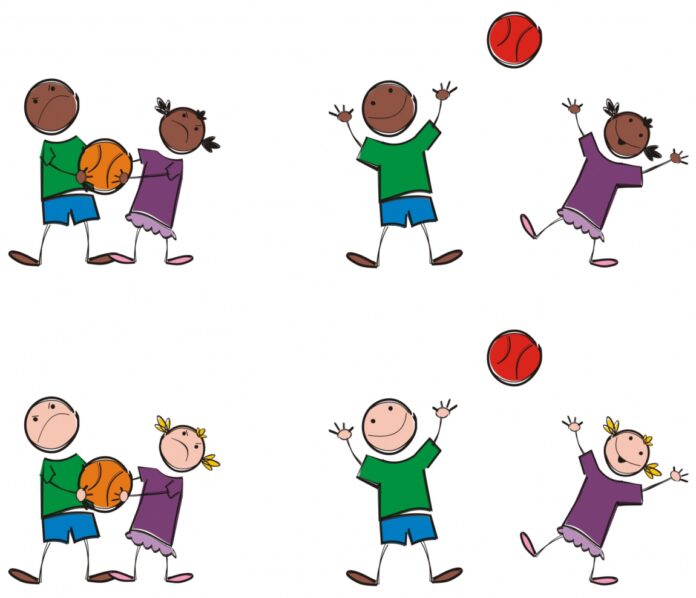Globally October 10 is marked as World Mental Health Day. It’s a day meant to raise awareness around issues related to mental health. The theme of the 2022 World Mental Health Day was ‘Make mental health for all a global priority”. Part of making it a global priority means focusing on the most vulnerable which includes children.
Children’s rights in South Africa are ingrained in the constitution of South Africa. Section 28 of the Bill of Rights in the Constitution states that “every child has the right to basic nutrition, shelter, health care and social services, as well as the right to be protected from maltreatment, neglect, abuse or degradation”. Dr Erica Munnik, from the department of psychology at the University of Western Cape about children and mental health, spoke to The Daily Vox about this.
Munnik said from the constitution to organisations like Unicef, there is an emphasis of the importance of mental health for children.
RELATED:
Supporting women with mental ill-health in pregnancy and after birth: lessons from South Africa
This has become increasingly important with the outbreak of COVID-19 and the subsequent lockdowns. Several studies have shown that mental health problems among children were increasingly observed. Anxiety, depression, stress, fear, tension, anger, fatigue, confusion and worry were some of the most common mental health issues reported.
While these mental health issues are experienced by both children and adults, the impacts and effects are different. This is because Dr Munnik said adults and children have different developmental milestones. However, they are connected. The mental health of parents and teachers and key figures in a child’s life can affect the child’s mental health.
With adults, physical and mental healthcare are often talked about together. With children, nutrition, basic needs, security and safety all play an important role. For that reason, Munnik says it’s important to look at children within the context of their family, community and school.
“Children’s mental health always needs to be looked at in context,” said Munnik. A good home environment with parents with good mental health will provide a good environment for children and their mental health.
RELATED:
Children and screens – making it through the holidays
Another aspect where children’s mental health differs from adult’s mental health is with regards to cognitive functioning and emotional awareness. In children, cognitive functioning is something that develops as they grow older. Munnik said there is a need to look at how children communicate based on their own emotional awareness as well as the awareness of the adults around them. Very small children would communicate through their play because they might not necessarily have the language to communicate their feelings. Children from the age of five upto adolescence would have the language necessary to communicate their feelings and thoughts.
“Is the family or the mum and dad able to listen and reflect back where they are at in terms of emotion,” said Munnik. It is important for adults to receive this positively. Munnik said parents and teachers need to be able to track behavioural changes in their children. More than that, they need to open up communication with their children with unconditional acceptance.
RELATED:
By limiting access to treatment, poverty exacerbates mental illness
Munnik said it’s very important for children to be able to see positive modelling reflected back to them. If parents are aware of their own emotions, this sets a good example to children. “Children will let us know in different ways if they are not mentally healthy. Parents and teachers need to be aware of that,” said Munnik.
Munnik said if children are not able to see adults expressing their emotions and how to deal with them, they will not be able to see that’s normal for them as well. Parents need to be aware of their own emotions and they need to be responsible for their emotions and regulate them appropriately. This is all in the effort to model good, positive behaviour for children.
Another thing that is important for the development of good mental health for children is parent’s attention, said Munnik. Parents need to dedicate time to listening and spending time with their children and being present.
However, that’s not always possible especially in South Africa with the socio-economic conditions facing many people. Munnik said for this reason there needs to be enough ground-level and primary workers like teachers, social workers and community clinic nurses to assist. There is a need for parents to be aware of the resources available to them and their children so they can get help if they are unable to cope.
RELATED:
The mental health fight intensifies for South African youth in corporate
The main issue remains that children and adolescents having good mental health will allow for a better effect on the entire society. In order for children to have good mental health, it starts at home and in school. Having good functioning families and schools will help the child but also contribute to less violence and abuse in the society as a whole, said Munnik.
Munnik said: “That will have a rippling effect on a child as the child is able to believe in their capacity on a cognitive side. They will be able to communicate their needs and regulate their emotions properly. They will be able to look out for others.”
In order to achieve this, there is a need for a holistic approach where parents, teachers, social workers and government all come together.









